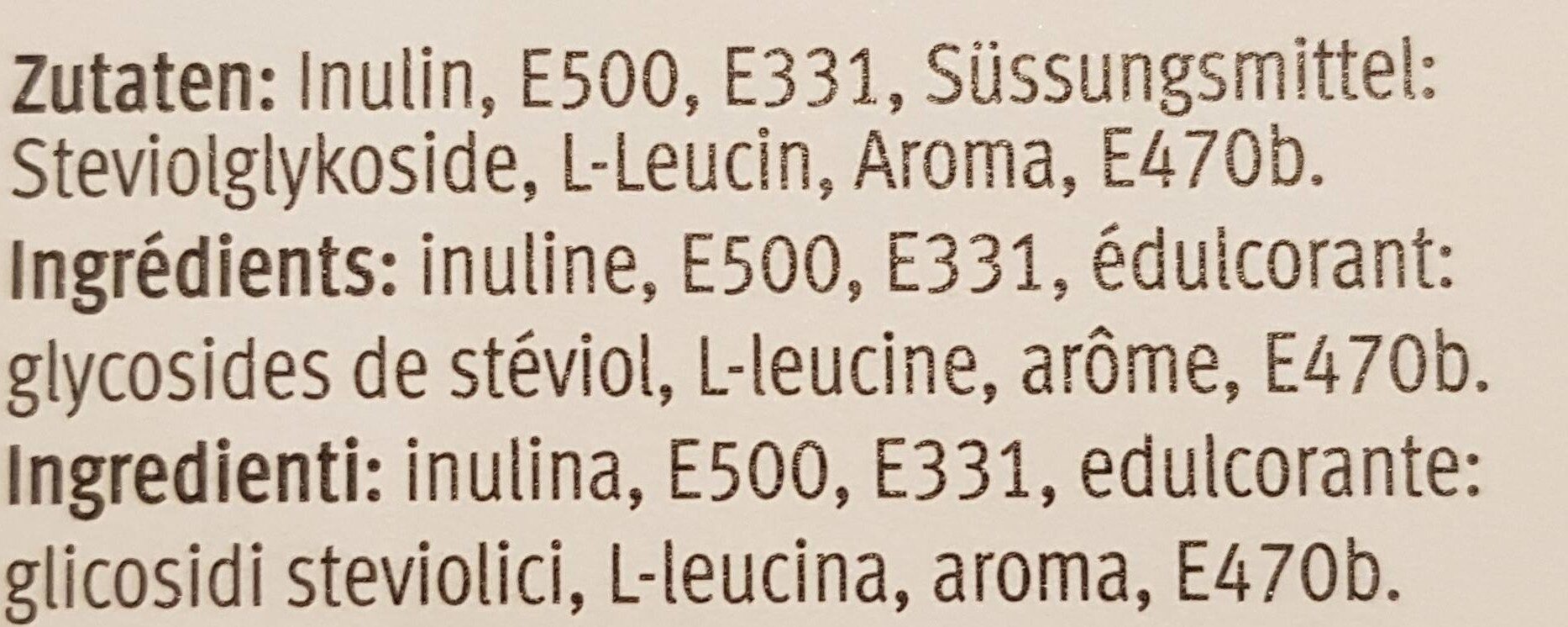Pastilles d'édulcorants à base de glucosides de stéviol - Migros - 800 g
This product page is not complete. You can help to complete it by editing it and adding more data from the photos we have, or by taking more photos using the app for Android or iPhone/iPad. Thank you!
×
Barcode: 7610177004591 (EAN / EAN-13)
Quantity: 800 g
Brands: Migros
Stores: Migros
Countries where sold: Switzerland
Matching with your preferences
Environment
Packaging
Transportation
Report a problem
Data sources
Product added on by openfood-ch-import
Last edit of product page on by teolemon.
Product page also edited by foodrepo, hungergames, kiliweb, yuka.VkpJdUNhY1ByOWNob2NRbCtEbkZvT2xFMTZHWGVVRHRkOE1OSWc9PQ.
If the data is incomplete or incorrect, you can complete or correct it by editing this page.






